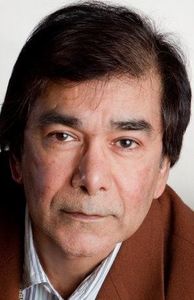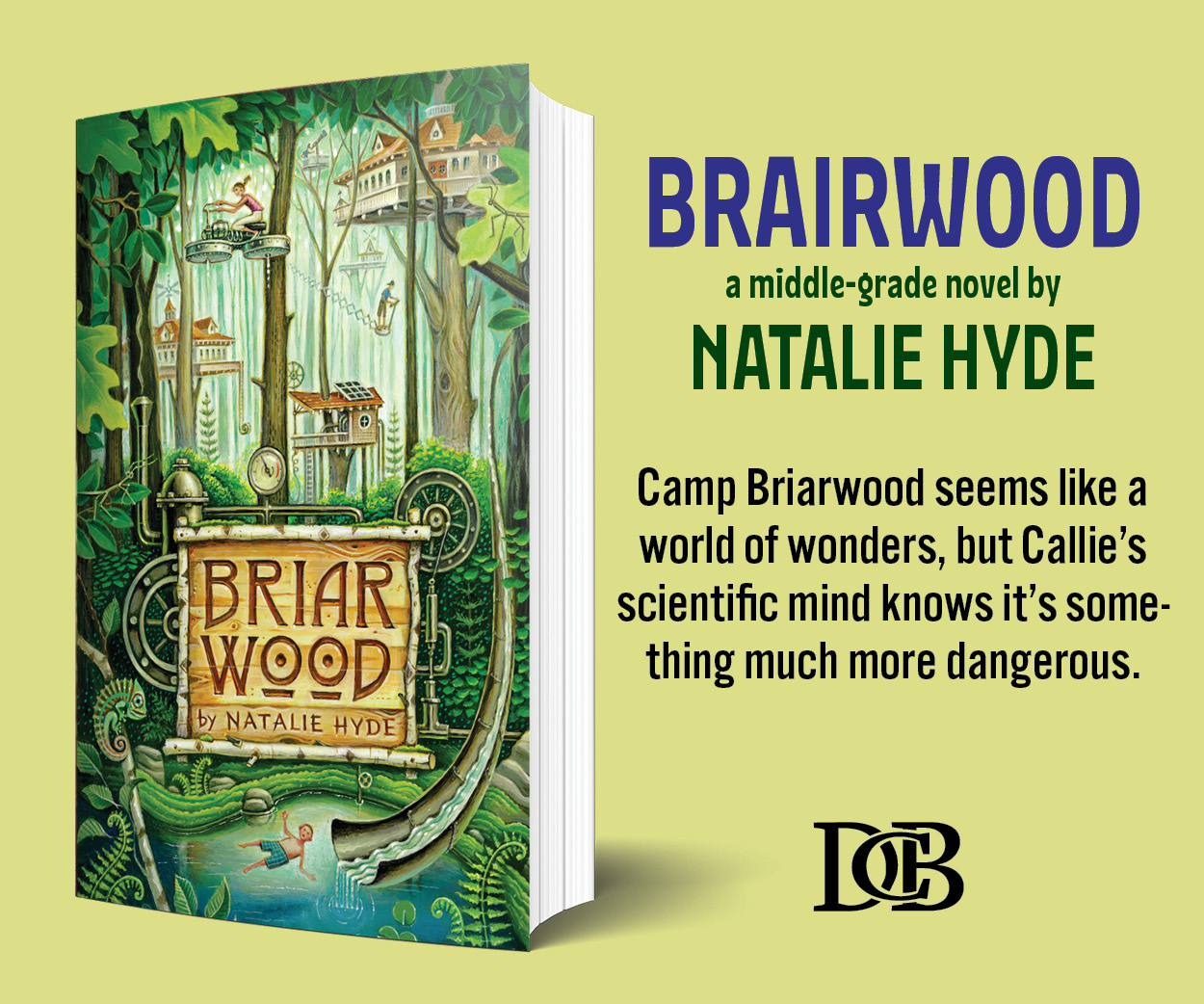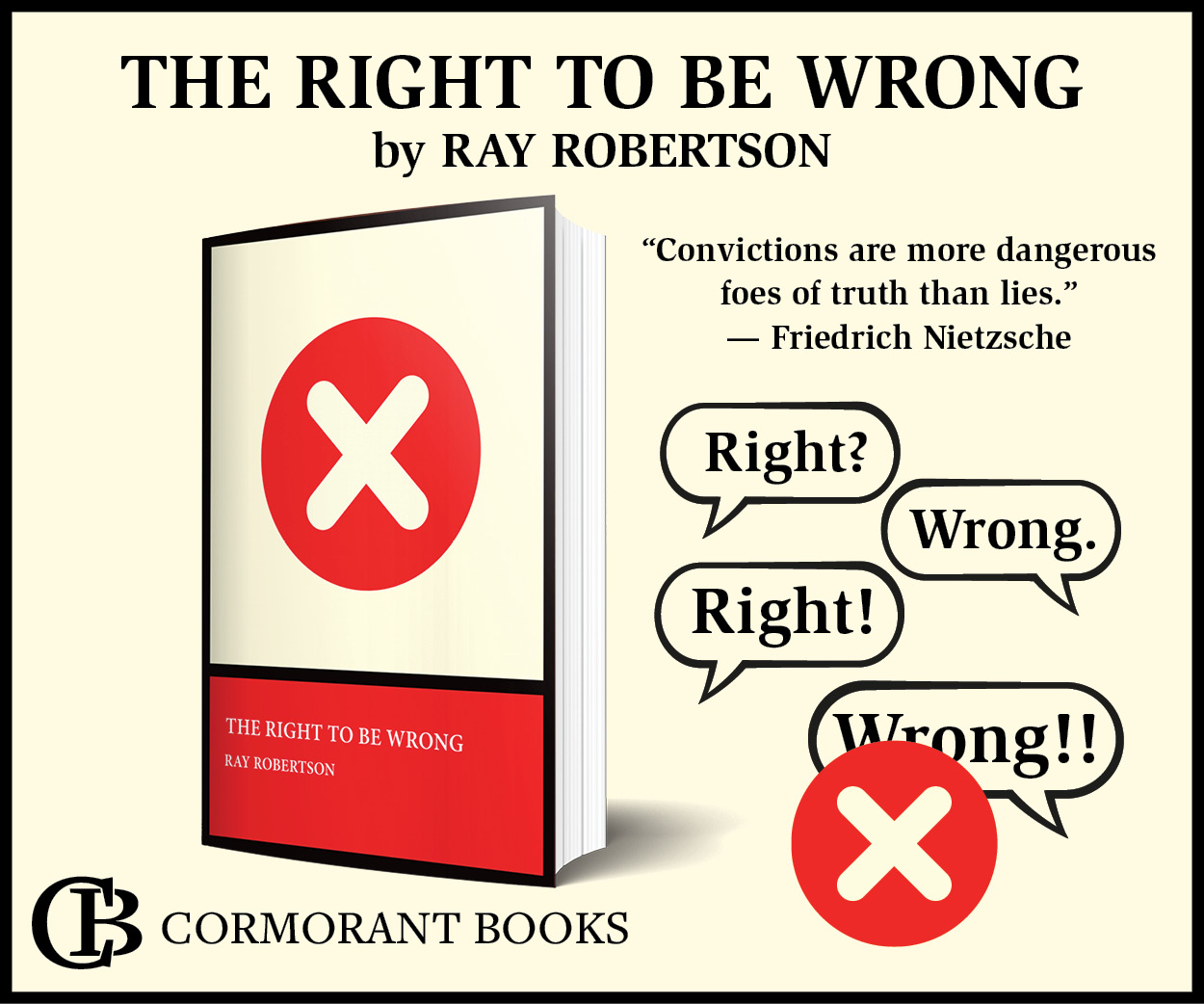Rabindranath Maharaj and His New Novel Exploring "The Oldest Question in the World"
Rabindranath Maharaj's decorated literary career includes honours like the Trillium Book Award, the Toronto Book Award, and the Queen Elizabeth II Diamond Jubilee Medal, to name just a few. It also includes devoted readers who have adored his five (now six) novels and three story collections for his wildly imaginative and magical style.
With Adjacentland (Wolsak & Wynn), his newest novel, Maharaj continues to innovate and explore new territory. This time he takes readers into fractured and tense narrative, beginning with a man awakening without memories. The man comes to believe he is a comic book writer whose imagination has been suppressed, while the people holding him in the mysterious Compound insist he is in fact crazy and dangerous. Delving into imagination, identity, and artificial intelligence, Adjacentland is timely, absorbing, and wonderfully uncomfortable.
We're thrilled to welcome Rabindranath to Open Book today to take our Lucky Seven series, where we ask authors to answer seven questions about their book and writing process. He tells us about the struggle of seeing his father afflicted with Alzheimer's disease and how that experience affected the book, "possibly the oldest question in the world" which is at the centre of Adjacentland, and what happens when he reaches the "crazy zone" in the writing process.
Open Book:
Tell us about your new book and how it came to be.
Rabindranath Maharaj:
It’s titled Adjacentland and it’s about an amnesiac who finds himself in a compound administered by three old men who try to convince him he is mad. As the story progresses the narrator attempts to reconstruct some semblance of his former life from mysterious clues he uncovers. He begins to suspect he is part of an experiment to ignite what has been lost: the imagination. The idea for the book first arose during my visits to Trinidad where I observed the changes in my father who was afflicted with Alzheimer. I began to consider how much someone can be emptied by forgetfulness and how they struggle to fill the gaps with spurts of inventiveness. We are all defined by our memories, yet it is such a fragile thing.
OB:
Is there a question that is central to your book, thematically? And if so, did you know the question when you started writing or did it emerge from the writing process?
RM:
At its core is possibly the oldest question in the world. What is real and what is not. To be more precise, I wanted to examine how we are shaped by our memories and by what we choose- or are led – to remember. As the book progressed, ancillary themes emerged, like the potential perils of AI and social media. Everything is now presented in such a predigested manner there are rarely these moments of reflection and of thoughts forming gradually. It’s possible that we are now seeing and believing and imagining the same things and if that’s the case then what we take for the imagination is really a thing that possesses so many imprints it cannot belong to us. So we are controlled in ways not always known to us. I tried to evoke these possibilities in the book.
OB:
Did this project change significantly from when you first started working on it to the final version? How long did the project take from start to finish?
RM:
It changed a lot. I began the novel with the idea that the main character was brilliant yet clearly mad but as I wrote I began to believe him and considered the possibility there was a rationale for his madness or confusion. Typically, I go through two drafts of a book before I feel satisfied, but this book went through several drafts. There were themes I wished to explore but I also wanted to give the book some of the flavor of an old-fashioned mystery. I had to maintain a balance between the paranoiac and brilliant sides of the narrator, so I constantly added connections and layers and clues. I also removed sections that tilted the story too much in one direction. The book took close to four years to complete.
OB:
What do you need in order to write – in terms of space, food, rituals, writing instruments?
Your CanLit News
Subscribe to Open Book’s newsletter to get local book events, literary content, writing tips, and more in your inbox
RM:
Solitude mostly which is odd because I write in a coffee shop. I believe the act of deflecting all the noise forces me to focus. I aim for two hours in the mornings and two in the evenings. Sometimes it’s less and at other times – like when I am in the final stages of a book – it’s more.
OB:
What do you do if you're feeling discouraged during the writing process? Do you have a method of coping with the difficult points in your projects?
RM:
With every book at some point I feel that it’s silly and I am wasting my time. But I plod on until I convince - or delude - myself of its worth. With every previous book, too, I arrived at a crazy zone, usually two-thirds into the book, where everything came together; all the connections and associations and everything I had missed. I have often worried what I would do if this zone absented itself. Sometimes I have to rediscover the magic of words and then I read through a couple pages of a writer I admire.
OB:
What defines a great book, in your opinion? Tell us about one or two books you consider to be truly great books.
RM:
I am more fascinated by intriguing characters than exciting plots so a great book for me is one with an unforgettable central character. I would mention most of Dickens, Naipaul’s A House for Mr. Biswas, and King Lear.
OB:
What are you working on now?
RM:
I am doing the final tinkering with a novel tentatively titled Fatboy Fall Down to be published by ECW next spring.
____________________________
Rabindranath Maharaj is the award-winning author of three short story collections and five novels, including The Amazing Absorbing Boy, which won the 2010 Trillium Book Award and the 2011 Toronto Book Award, and was voted a CBC Canada Reads Top 10 for Ontario. In 2012, Maharaj received a Lifetime Literary Award, administered by the National Library and Information System Authority as part of the commemoration of Trinidad's fiftieth independence anniversary. In 2013, he was awarded the Queen Elizabeth II Diamond Jubilee Medal, which honours significant contributions and achievements by Canadians.




